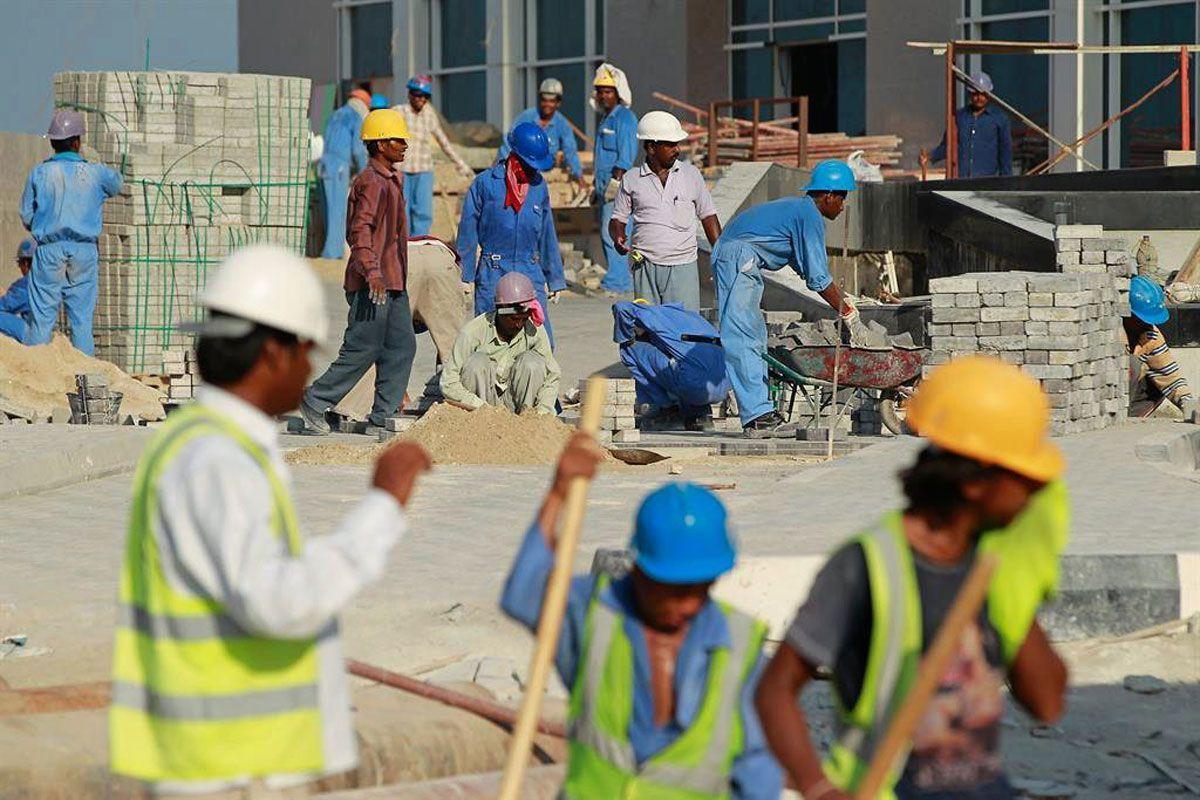Florida is one of the fastest-growing states in the U.S., and its booming construction industry offers tremendous opportunities for immigrants.
This blog explores the available job roles, visa options, and tips for navigating the industry as a newcomer.
Overview of Florida’s Construction Industry
Florida’s construction industry has grown rapidly in recent years, providing significant job opportunities for immigrants. From residential buildings to commercial infrastructures, there is a consistent demand for skilled and unskilled labor.
Why Florida is a Hotspot for Construction Jobs
Several factors make Florida a leading destination for immigrants seeking construction jobs:
1. Booming Population Growth
Florida is one of the most populous states in the U.S., with a consistent influx of new residents. This population growth drives the demand for new homes, commercial properties, schools, and infrastructure. Cities like Miami, Orlando, and Tampa are experiencing significant expansion, creating ample construction opportunities.
2. Hurricane Repairs and Rebuilding Efforts
Florida is known for its susceptibility to hurricanes and extreme weather conditions. After every major hurricane, construction jobs surge as rebuilding efforts are prioritized. This leads to an increased demand for both skilled and unskilled workers.
3. Tourism-Driven Projects
Florida’s status as a tourism hub means continuous investment in infrastructure. Resorts, hotels, and amusement parks require constant upgrades, renovations, and new developments. This makes the state an attractive market for those seeking construction employment.
4. Real Estate Development
The state’s real estate market is booming, with developers focusing on building luxury condominiums, apartment complexes, and commercial properties to accommodate both the growing population and tourism industry.
Common Construction Jobs for Immigrants in Florida
Immigrants looking for construction jobs in Florida can find a variety of roles depending on their skills, qualifications, and interests. Some of the most common positions include:
1. General Laborer
General laborers are responsible for performing tasks such as cleaning construction sites, carrying materials, and assisting skilled workers. This role doesn’t require specialized skills, making it accessible to immigrants with little experience in the construction industry.
2. Carpenter
Carpenters work on building frameworks, walls, and other structures. Carpentry is a skilled trade that often requires specific training or experience, but it can be a lucrative job for immigrants who possess these skills.
3. Electrician
Electricians install, maintain, and repair electrical systems in buildings. Immigrants with an electrical background can find employment in Florida’s growing construction industry, though certification may be required.
4. Plumber
Plumbers are responsible for installing and repairing piping systems. Like electricians, plumbers need training and certification to work in Florida, but the demand for their services is high, especially in urban and rapidly developing areas.
5. Masonry Worker
Masonry workers build walls, floors, and walkways using bricks, concrete, and other materials. This job requires physical strength and an understanding of construction techniques, but training is often available on-site, making it accessible to immigrants without formal education.
6. Welder
Welders work on metal structures, such as bridges, buildings, and pipelines. Welding is a specialized trade that requires certification, but many immigrants with experience in welding can find steady employment in Florida’s construction industry.
7. Construction Supervisor or Foreman
For those with experience in managing construction sites, supervisory roles offer higher wages and more responsibilities. Construction supervisors or foremen ensure that projects are completed on time, within budget, and in compliance with safety standards.
Visa Options for Immigrants Seeking Construction Jobs
Securing a visa is one of the most critical steps for immigrants seeking construction jobs in Florida. The U.S. offers several visa options for immigrants depending on their skills, employment status, and duration of stay.
1. H-2B Visa (Temporary Non-Agricultural Worker Visa)
The H-2B visa allows U.S. employers to hire foreign workers for temporary or seasonal work. The construction industry is a frequent beneficiary of this visa program, particularly in areas like Florida where demand for seasonal labor is high.
– Eligibility: Workers must have a job offer from a U.S. employer, and the employer must demonstrate that no U.S. workers are available for the position.
– Duration: The H-2B visa is usually valid for 1 year, with the possibility of extension up to 3 years.
2. Employment-Based Immigrant Visas (EB-3)
The EB-3 visa is an employment-based green card that allows foreign workers to live and work permanently in the U.S. It is divided into three categories, including “Skilled Workers” and “Unskilled Workers” (other workers), both of which apply to the construction industry.
– Eligibility: Workers must have a permanent job offer from a U.S. employer. Skilled workers must have at least 2 years of experience or training, while unskilled workers can qualify for roles that require less training.
3. TN Visa (For Mexican and Canadian Workers)
Under the USMCA (formerly NAFTA), Mexican and Canadian citizens can apply for a TN visa to work in the U.S. in specific fields. While construction isn’t typically listed, certain specialized roles, such as engineers and architects, may qualify.
4. L-1 Visa (Intra-Company Transfers)
Immigrants working for multinational construction companies may be eligible for an L-1 visa, which allows for the transfer of employees to the U.S. branch of their company. This visa is usually reserved for managerial positions or those with specialized knowledge.
Employer Sponsorship: A Key Factor
For most immigrant workers, securing employer sponsorship is a critical step in obtaining a visa. Construction companies that regularly hire foreign workers often have experience with the sponsorship process and can guide immigrants through it.
How to Secure Employer Sponsorship:
1. Networking: Leverage your professional and personal network to find construction employers who hire immigrants.
2. Job Boards: Use job boards like Indeed, Monster, and specialty construction job platforms to find openings with companies offering visa sponsorship.
3. Staffing Agencies: Some staffing agencies specialize in placing foreign workers in construction jobs and can facilitate the visa application process.
How to Apply for Construction Jobs in Florida
Applying for a construction job in Florida requires careful planning, especially for immigrants. Here’s a step-by-step guide to help you navigate the process:
1. Research Potential Employers
Before applying, research construction companies in Florida that have a history of hiring immigrant workers. Focus on employers who offer visa sponsorship and have projects that align with your skills and experience.
2. Prepare Your Resume and Portfolio
A strong resume highlighting your construction experience, certifications, and skills is essential. If you have a portfolio of past projects, especially for skilled roles like carpentry or masonry, include it in your application.
3. Check Visa Requirements
Review the visa requirements for the job you’re applying for. Make sure you meet the qualifications, including proof of work experience, training, or certification.
4. Submit Applications
Submit your application through job boards, company websites, or staffing agencies. Be prepared to discuss your immigration status and any visa requirements in your cover letter or during the interview process.
5. Follow Up
Construction jobs are often filled quickly, so follow up with potential employers to demonstrate your interest and availability.
Skills Required for Construction Jobs in Florida
The construction industry values both physical and technical skills. While some positions require on-the-job training, others may need certification or specialized knowledge.
1. Physical Strength and Endurance
Construction workers must often lift heavy objects, stand for long periods, and work in various weather conditions.
2. Basic Math Skills
Carpenters, masons, and electricians must perform calculations for measurements, layouts, and installations. Having a solid understanding of basic math is crucial for these roles.
3. Knowledge of Safety Protocols
Construction sites can be hazardous, so knowing and adhering to safety protocols is vital. Some employers may require OSHA (Occupational Safety and Health Administration) certification.
4. Technical Skills
For skilled trades like plumbing, electrical work, and welding, technical proficiency and certification are necessary. Many trade schools in Florida offer certification programs for these fields.
Challenges and Solutions for Immigrants in the Construction Industry
While construction jobs offer many opportunities for immigrants, there are also challenges to be aware of, including language barriers, visa restrictions, and housing.
1. Language Barriers
In many cases, a lack of English proficiency can make it difficult for immigrants to communicate on the job. However, many construction sites in Florida have Spanish-speaking supervisors and staff, especially in areas with large Hispanic populations. Taking English language courses can also improve job prospects.
2. Visa Limitations
Temporary visas like the H-2B may restrict how long an immigrant can stay and work in the U.S. Consider applying for an employment-based immigrant visa if you wish to live and work in Florida long-term.
3. Housing
Finding affordable housing near construction sites, especially
in high-demand cities like Miami, can be challenging. Some employers offer housing assistance, while others may provide stipends for commuting.
Wage Expectations for Construction Workers
The wage for construction jobs in Florida varies based on role, experience, and location. According to the U.S. Bureau of Labor Statistics:
– General Laborers: $13–$18 per hour
– Carpenters: $20–$30 per hour
– Electricians: $25–$35 per hour
– Plumbers: $22–$30 per hour
– Construction Supervisors: $50,000–$75,000 annually
Conclusion
The construction industry in Florida offers a wealth of opportunities for immigrants, from general labor positions to skilled trades and management roles.
By understanding the visa options, job roles, and skills required, you can successfully navigate the job market and secure employment in this growing field.



